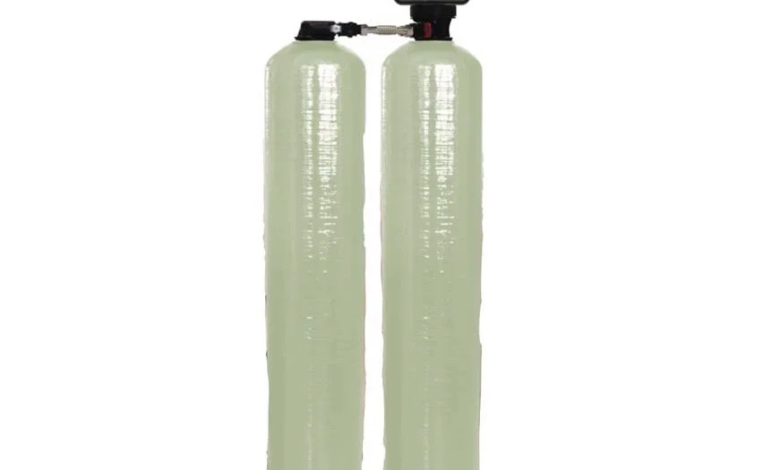Why Clean Water Means Better Business: The Overlooked Factor in Customer Experience

Most businesses obsess over interior design choices, staff training programmes, and service speed. Owners spend thousands on new furniture or lighting upgrades. Yet many completely overlook something customers interact with directly: the water quality offered to them. This silent factor shapes opinions about your business more than you might expect.
Poor water quality creates problems that customers notice immediately, even if they can’t identify the exact cause. Commercial water filtration systems address these hidden issues by removing contaminants that affect taste, odour, and clarity. When water tastes metallic or smells unpleasant, customers form negative associations with your entire operation. Clean, properly filtered water does the opposite—it supports positive impressions without drawing attention to itself.
The Silent Brand Killer Nobody Discusses
Taste Perception Ruins Everything: Coffee shops discover this harsh truth when customers complain that drinks taste “off” despite using premium beans. The culprit is often chlorine, minerals, or sediment in unfiltered water. Your expensive ingredients can’t overcome poor water quality. Restaurants face identical challenges when soups, sauces, and beverages develop strange flavours that puzzle kitchen staff.
Visual Contamination Creates Disgust: Cloudy water in restroom taps signals poor maintenance to visitors, regardless of how spotless your facilities actually are. Customers make split-second judgements based on what they see. Sediment, discolouration, or cloudiness triggers instinctive concerns about hygiene standards. These visual cues override rational thought processes.
Odour Problems Drive People Away: Sulfur smells or musty odours from water create immediate negative reactions. Guests at hotels notice these issues within seconds of turning on bathroom taps. Healthcare facilities face particularly harsh scrutiny because patients and families already feel anxious about cleanliness standards. Unpleasant water odours amplify those existing concerns dramatically.
See also: Leading Business Transformation With Digital Tools.
Industries Where Water Quality Demands Attention
Food Service Operations Face Maximum Exposure: Restaurants and cafés use water in nearly every dish and beverage they serve. Poor filtration affects ice quality, cooking water, and drink preparation. Customers might not articulate the problem, but they notice when something tastes wrong. Competition in food service is brutal—small details like water quality separate thriving businesses from struggling ones.
Hospitality Venues Live on Reputation: Hotels and resorts charge premium rates based on guest experience expectations. Shower water quality, drinking water taste, and even pool water clarity all contribute to overall satisfaction scores. Online reviews frequently mention water quality issues, sometimes years after a single bad experience. The damage to reputation outlasts the actual problem.
Healthcare Facilities Cannot Afford Risks: Clinics, dental offices, and care homes require exceptionally clean water for patient safety and comfort. Families scrutinise these environments carefully when choosing care providers. Water quality signals broader attention to detail and professional standards. Medical facilities also use water in treatment procedures where contamination poses genuine health risks.
Corporate Environments Reflect Company Values: Office spaces provide drinking water and break room facilities for staff and visiting clients. Poor water quality suggests a company doesn’t invest in employee wellbeing. Clients notice these details during meetings and site visits. Clean, great-tasting water communicates that your organisation values quality in all areas.
The Hidden Costs Eating Your Profits
Equipment Destruction Happens Gradually: Unfiltered water contains minerals and sediment that destroy expensive equipment over time. Coffee machines, ice makers, dishwashers, and water heaters all suffer accelerated wear. Scale buildup reduces efficiency and eventually causes complete failure. Replacement costs add up quickly when multiple units fail within short timeframes.
Maintenance Bills Multiply Unnecessarily: Hard water creates constant maintenance demands across your facility. Faucets develop mineral deposits. Pipes narrow as scale accumulates inside them. Water pressure drops, forcing pumps to work harder. These cascading problems require frequent service calls and parts replacement. The ongoing expense often exceeds what proper filtration would have cost.
Energy Waste Compounds Over Time: Scaled equipment uses significantly more energy to achieve the same results. Water heaters work harder to heat water through mineral layers. Ice machines run longer cycles. Dishwashers need extended wash times. Your utility bills reflect this inefficiency month after month. Energy costs keep rising whilst equipment performance keeps declining.
Investment That Pays for Itself
Calculate Real Savings Accurately: Compare your current spending on equipment repairs, replacements, and descaling products against filtration system costs. Include the value of staff time spent dealing with water quality complaints and maintenance issues. Most businesses discover that proper filtration pays for itself within two years through reduced equipment damage alone. The timeline shortens when you factor in customer retention benefits.
Competitive Advantage Through Details: Customers might not consciously recognise superior water quality, but they remember positive overall experiences. Great-tasting coffee keeps people coming back to your café instead of competitors. Hotel guests who enjoy their stay tell friends and leave positive reviews. These cumulative effects drive revenue growth that’s difficult to achieve through other investments.
Brand Protection Requires Vigilance: One viral social media post about cloudy tap water or foul-smelling ice can damage your reputation permanently. Prevention costs far less than crisis management and recovery efforts. Water quality problems often blindside business owners because they develop gradually. By the time customers start complaining publicly, significant brand damage has already occurred.
Conclusion
Clean water shapes customer perceptions and protects your business infrastructure simultaneously. This overlooked factor influences everything from beverage taste to equipment longevity. Businesses that address water quality proactively gain advantages competitors don’t even recognise exist. The investment protects profits whilst elevating customer experience in ways most marketing efforts cannot match. Take action now to assess your water quality and implement corrective solutions before problems force your hand.




